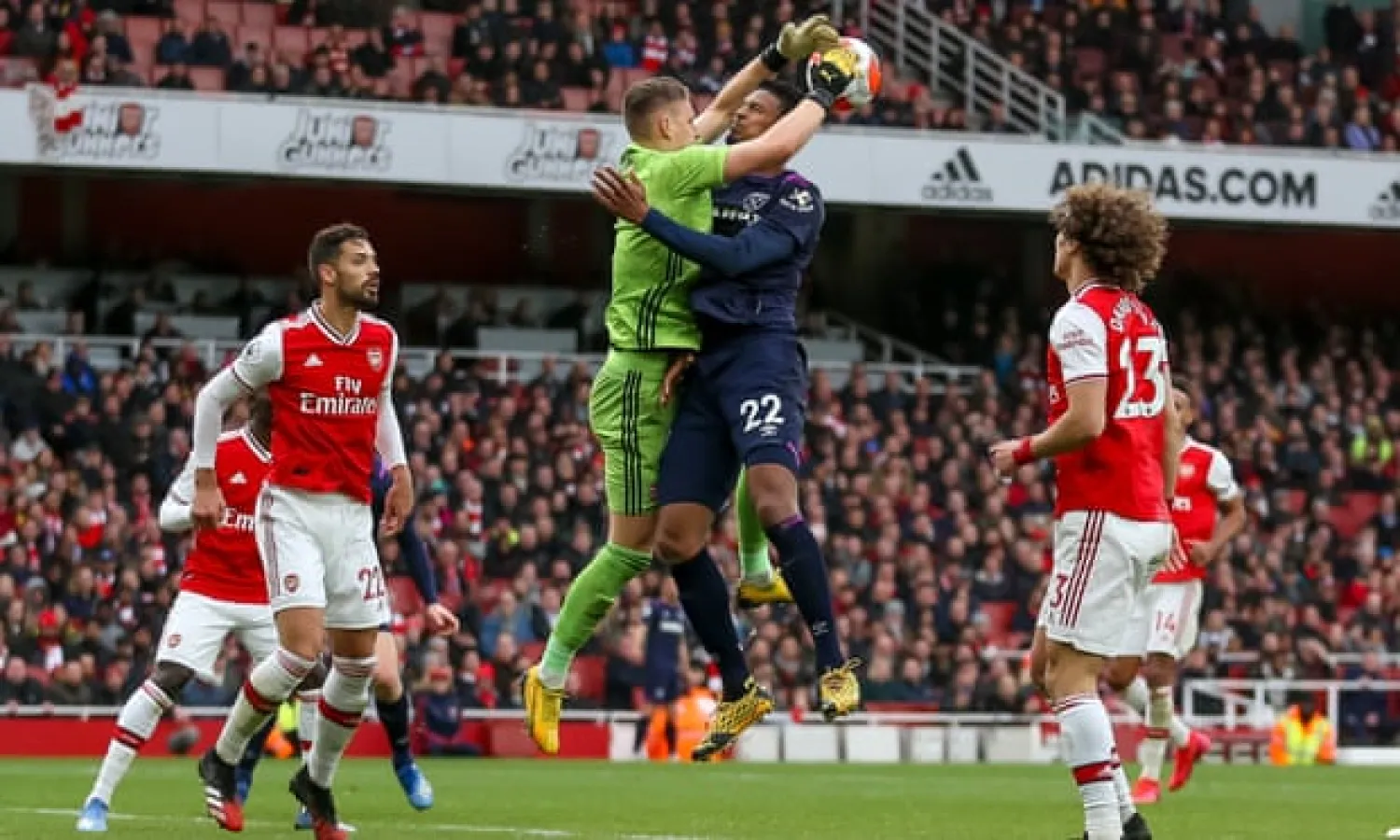It was another great Arsenal No 1, David Seaman, who always claimed that the real gauge of a keeper’s worth is not in the mistake itself, but the reaction. Dropped crosses and fumbled shots are an occupational hazard. Nobody is immune. But if you want to judge a goalkeeper, Seaman argued, watch their next game.
How’s their confidence? How’s their mettle? Do they shrink? Do they hide? Here, nine days after the error that helped eliminate Arsenal from Europe, was Bernd Leno’s answer. Left out of the squad for Arsenal’s FA Cup game last Monday, Leno will have had plenty of time to contemplate his hashed 119th-minute clearance against Olympiakos: to watch some of the scathing media reaction, to dwell on his misjudgment. Then he stepped out against West Ham on Saturday and produced a performance of nerve, resilience and outstanding reflexes that was probably the difference between three points and none.
It was Alexandre Lacazette who grabbed the headlines for his late winning goal but on a day when Arsenal looked curiously vulnerable, this felt like Leno’s victory. With West Ham’s cagey 4-4-2 system generating plenty of openings on the break, it was Leno who stood up to them: smothering the ball at Sébastian Haller’s feet in the first half, saving a close-range shot from the same player late in the second.
His standout moment, however, came on 55 minutes, when he somehow managed not only to stop Michail Antonio’s free header from seven yards, but parry it so powerfully that it set up Pierre-Emerick Aubameyang for an immediate counterattack. It was, Lacazette would later gush, an amazing save, albeit of the sort Arsenal would rather he did not have to make quite so often.
This, in many ways, is the goalkeeper’s paradox: very often their own success is a figuration of the team’s wider failures. You only had to watch the bristling reaction of the Sheffield United manager, Chris Wilder, to the news that Dean Henderson was named man of the match in their 1-0 win over Norwich on Saturday (“He’s only made a couple of saves! That’s what he’s there for.”). If your goalkeeper is the standout player, something’s probably gone wrong somewhere else on the pitch.
Yet this is not the only reason Arsenal fans have often been ambivalent to Leno in the two years since he joined from Bayer Leverkusen for around £19m. As the past fortnight has perfectly demonstrated, Leno can lose games, but he wins and rescues plenty more. The draws against Wolves, Southampton and Norwich immediately spring to mind as games that Arsenal would almost certainly have lost without their big flexible German to bail them out.
Equally, there was the horrible mistake against Chelsea in December, when he came for a cross and ended up flapping at thin air as Jorginho scored. Then there was the botched save in the north London derby in September, when he palmed Érik Lamela’s shot straight to Christian Eriksen.
Leno came to Arsenal with a reputation for inspired shot-stopping and the occasional calamitous lapse, such as the error-strewn display for Germany at the 2017 Confederations Cup that probably cost him a place in Joachim Löw’s World Cup squad the following year. Thus far, that pattern seems to have held: since his arrival in England, no Premier League goalkeeper has made more errors leading directly to goals (Martin Dubravka, David de Gea and Jordan Pickford are level with him, on seven).
You might think Leno’s mixture of greatness and madness would not necessarily be the ideal tonic for an emotionally brittle club trying to shrug off the vexing inconsistency that has beset it for more than a decade. In fact, as Seaman would doubtless point out, Leno’s value to Arsenal is more complex than a simple ledger of points won and points lost.
In an age when goalkeepers are required to set the tone, to be more aggressive and proactive and open to risk than at any point in recent history, perhaps the mistakes and the inspirational match-winning displays are simply two sides of the same coin.
Leno may not yet be in the class of Ederson or Alisson, even if at 28 he has plenty of time to develop further. But it’s remarkable how much more assured he has looked since the arrival of Mikel Arteta, with the confidence that comes from a cogent strategy and the security that comes from playing behind a semi-functional defence. Arsenal have conceded 12 goals in Arteta’s first 15 games, compared with 28 in Unai Emery’s last 15 games. Though Leno is not solely responsible for that, it tallies with what the eyes tell us about a player who – with a little patience – may just show us where this Arsenal team are heading.
The Guardian Sport









